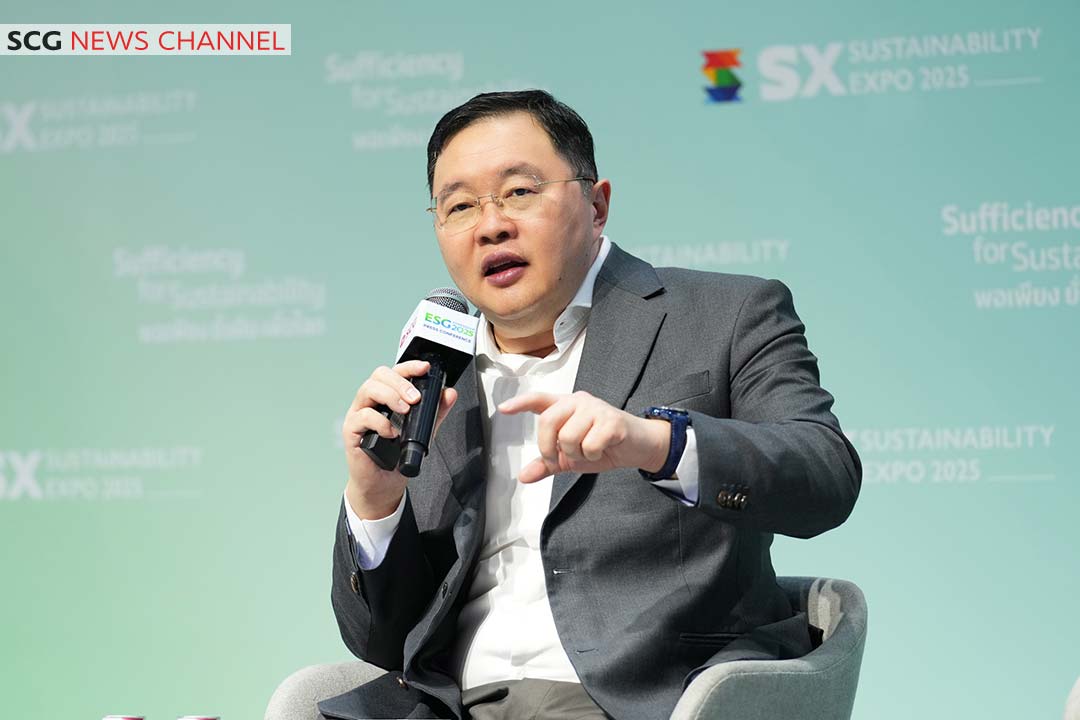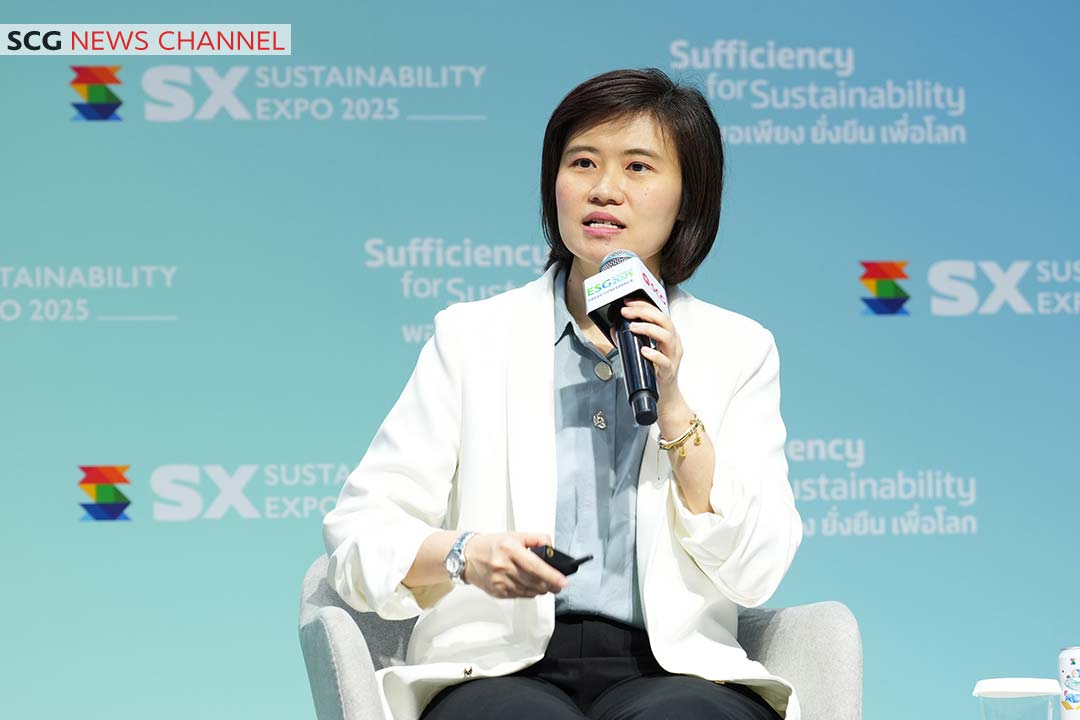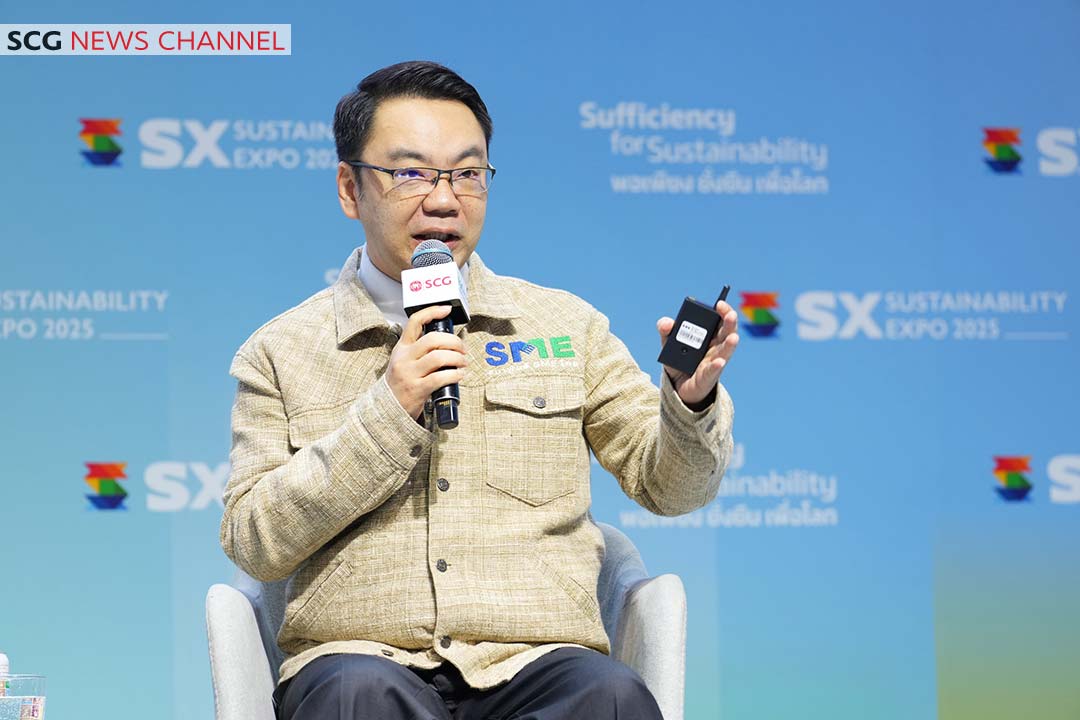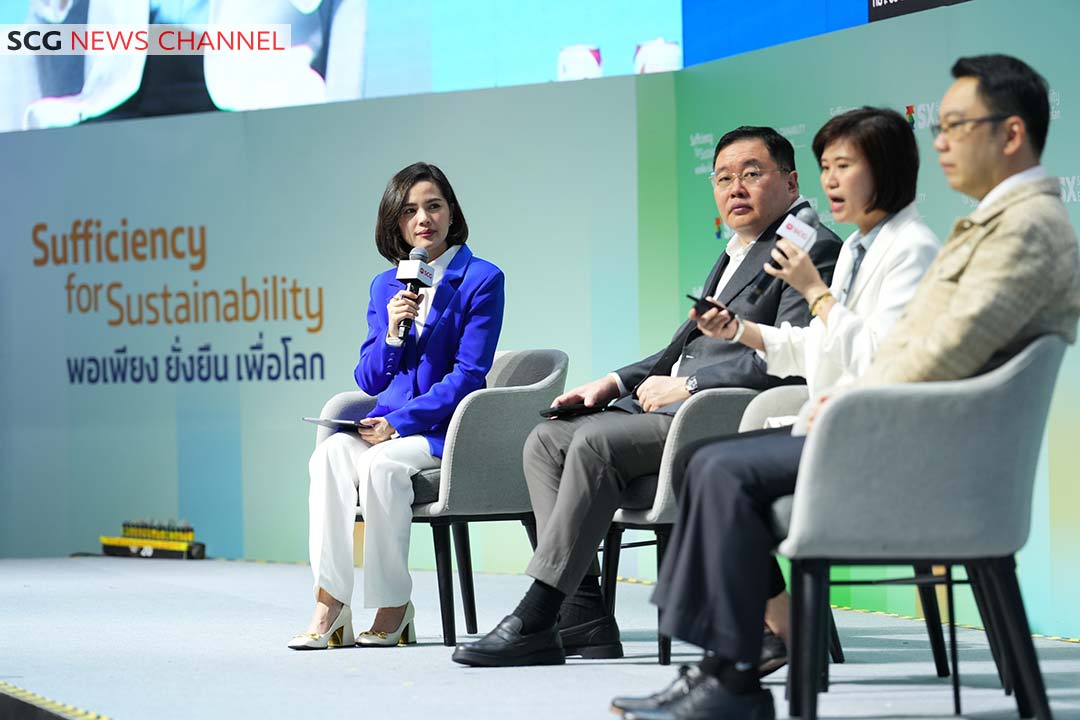October 2, 2025: Bangkok – Amid intensifying economic, social, and natural disaster challenges, ESG Symposium 2025 has been convened as a collaborative platform bringing together government, private sector, and civil society to drive concrete transition toward a low-carbon economy that must be “competitive, accessible, and actionable.” The event focuses on three critical priorities: first, accelerating the transition to clean energy (Energy Transition); second, elevating SMEs toward comprehensive and equitable low-carbon business practices (Just Transition for SMEs); and third, preparing for climate resilience (Climate Adaptation). These initiatives aim to strengthen international competitiveness and respond promptly to global volatility from both climate change and economic fluctuations.

Mr. Thammasak Sethaudom, President and CEO of SCG, stated: “ESG Symposium is a platform connecting all sectors. This year’s event is organized under the concept ‘GREEN BREAKTHROUGH AMID THE PERFECT STORM—Accelerate with Green, Survive Together‘ to collaboratively design and implement policies and programs that enable Thailand to compete and sustain itself. With over 300 participants from government, private sector, civil society, and domestic and international experts, the symposium facilitates knowledge and experience exchange to drive sustainable transition amid multifaceted challenges, including geopolitical conflicts, climate crisis, and global economic conditions arising from trade wars. Therefore, we must urgently establish a strategic framework that is ‘competitive, accessible, and actionable’ to maintain competitiveness on the global stage while building sustainable foundations. The key approaches are as follows:
- Unlocking, Restructuring, and Establishing a Comprehensive Free Energy System to Accelerate Energy Transition. The initiative focuses on concretely establishing a liberalized energy system through standardized electricity market liberalization with TPA Code and promotion of Direct Power Purchase Agreements (Direct PPA), while restructuring the energy system to accommodate new technologies. This supports clean energy use at appropriate costs and enhances electricity system flexibility to efficiently manage global volatility.
- Elevating SMEs Toward Genuine Sustainability and Competitiveness. This involves establishing One Stop Service to enable SMEs to access capital, knowledge, and technology more conveniently, while supporting working capital and creating opportunities for SMEs to enter competitive markets. Simultaneously, production processes will be improved to reduce costs and increase efficiency through green and digital technologies, workforce skills will be developed through training and skill matching to prepare for market changes, and an ecosystem will be created linking national development plans and greenhouse gas reduction agendas. This positions SMEs as crucial mechanisms for driving Thailand’s economy toward stability and sustainability.
- Accelerating Climate Resilience Through Innovation and Collaboration. Serious implementation of climate adaptation foundations through partnerships with networks, deployment of appropriate technologies, and study and adaptation of policy approaches from other countries to align with Thailand’s context, all aimed at preparing for climate crisis response.

Dr.Areeporn Asawinpongphan Research Fellow-Energy Policy Thailand Development Research Institute (TDRI) , stated: “Thailand’s energy system faces pressure from NDC 3.0 greenhouse gas reduction targets, response to the European Union’s CBAM measures, and the necessity to elevate the Energy Transition Index for regional competitiveness. We therefore propose a framework of ‘Clear, Smooth, and Practical’ by emphasizing transparent Direct PPA market opening to attract renewable energy investment, restructuring electricity tariffs and systems to align with advanced technologies such as energy storage systems and hydrogen, while building close cooperation among government, private sector, and citizens to establish stable and sustainable Green Infrastructure. This includes developing green skills workforce. TDRI is prepared to support research and policy at every stage of this transition.”

Meanwhile, Dr.Noppong Teeravorn President The Federation of Thai SME, stated: “MSMEs (Micro, Small, and Medium Enterprises), which constitute over 99.5% of Thailand’s economic backbone among entrepreneurs and employ over 13 million people, continue to face four major challenges: access to capital sources, opportunities to connect with new markets, complex regulations, and lack of future skills. We have established approaches covering short-term, medium-term, and long-term measures. These measures urgently stimulate working capital injection for Micro and Small Entrepreneurs, with emphasis on creating new financial channels not restricted by banking systems that have highly stringent credit consideration criteria, such as assistance funds for small entrepreneurs (Micro and Small Entrepreneurs) with low interest rates of 3-4% annually to increase adaptability and enhance competitiveness moving forward. Beyond this, upgrading skills and innovation in Digital, AI and Green Transformation to prepare for connecting with new markets both domestically and internationally, including online markets, as well as creating comprehensive One Stop Service and Ecosystem, along with pushing regulatory improvements favorable to MSME entrepreneurs for stable long-term growth and competitiveness, are all essential for driving the country’s grassroots economy.”
“Furthermore, preparing for climate crisis response (Climate Adaptation) is an urgent challenge that the country must seriously pursue,” because impacts from climate change such as drought, flooding, and resource volatility are directly affecting the economy, quality of life, and national security. Comprehensive preparation is not an option but a necessity, requiring cooperation from all sectors in deploying technology, innovation, and knowledge to elevate adaptive capacity, reduce risk, and systematically build resilience.

“SCG is ready to move forward with partners from all sectors, including government, private sector, and civil society,” to implement recommendations from ESG Symposium 2025 through knowledge transfer and development investment via the PPP Saraburi Sandbox pilot project, to create a secure, sustainable future prepared to face all changes that will intensify in the years ahead,” Mr. Thammasak concluded.
Published on: Oct 2, 2025